Berry Consumption
How to submit an article:
- Registered users can submit any published journal article that has a unique DOI (Digital Object Identifier) name or link to Research Hub.
- For example, you can paste the full DOI link:
https://doi.org/10.1109/5.771073or just the DOI name:10.1109/5.771073into the field above and click submit. - The person who is first to submit a valid article to Research Hub will forever be credited for it, and every article submission earns you +6 Research Points.
Published research studies are articles that present the findings of original research that has undergone a peer-review process and has been made publicly available in scholarly journals, books or other media.
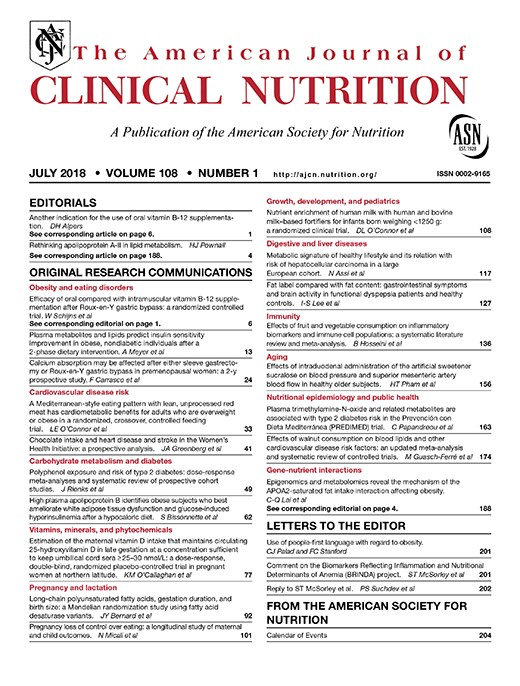
Moderate consumption of freeze-dried blueberry powder increased net bone calcium retention compared with no treatment in healthy postmenopausal women: a randomized crossover trial
2023 Aug The American Journal of Clinical Nutrition Hodges JK, Maiz M, Cao S, Lachcik PJ, Peacock M, McCabe GP, et al.
Experimental Study Clinical Study Randomised Controlled Trial Bone Calcium BlueberryModerate consumption of blueberries may effectively reduce bone loss in healthy postmenopausal women.
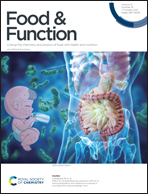
Daily blueberry consumption for 12 weeks improves endothelial function in postmenopausal women with above-normal blood pressure through reductions in oxidative stress: a randomized controlled trial
2023 Jan Food & Function Woolf EK, Terwoord JD, Litwin NS, Vazquez AR, Lee SY, Ghanem N, et al.
Daily consumption of freeze-dried blueberry powder for 12 weeks improves endothelial function through reduced oxidative stress in postmenopausal women with above-normal blood pressure.
Randomised Controlled Trial Blueberry Oxidative Stress
Effects of Blueberry Consumption on Cardiovascular Health in Healthy Adults: A Cross-Over Randomised Controlled Trial
2022 Jun 21 Nutrients Wang Y, Gallegos JL, Haskell-Ramsay C, Lodge JK
Randomised Controlled Trial BlueberryBoth whole blueberries and freeze-dried blueberry powder significantly enhanced plasma nitrite levels, a marker of cardiovascular health, but did not significantly affect other cardiovascular risk factors.
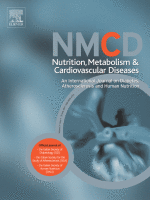
Effects of blueberry and cranberry on type 2 diabetes parameters in individuals with or without diabetes: A systematic review and meta-analysis of randomized clinical trials
2022 May Nutrition, Metabolism and Cardiovascular Diseases Delpino FM, Figueiredo LM, Gonçalves da Silva T, Flores TR
Meta-Analysis Systematic Review Blood Sugar Cranberry Type 2 DiabetesBlueberry and cranberry consumption significantly lowered fasting blood glucose and glycated hemoglobin levels in individuals with diabetes.
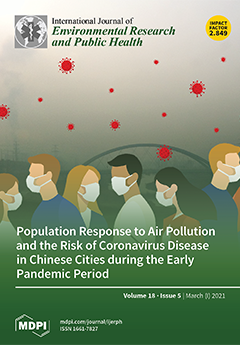
Effects of Dietary Red Raspberry Consumption on Pre-Diabetes and Type 2 Diabetes Mellitus Parameters
2021 Sep 04 International Journal of Environmental Research and Public Health Derrick SA, Kristo AS, Reaves SK, Sikalidis AK
RR may offer clinically beneficial effects for the prevention and management of chronic diseases through improvements in glucose handling and insulin sensitivity, adiposity, lipid profiles, ectopic lipid accumulation, inflammation, oxidative stress, and cardiac health.
Review Article Raspberry Type 2 DiabetesResearch insights are moderated by the Research Hub team and offer an at-a-glance overview of interesting research findings.

2023 The American Journal of Clinical Nutrition
Moderate consumption of blueberries may effectively reduce bone loss in healthy postmenopausal women.
Experimental Study Blueberry Bone Calcium
Moderate consumption of freeze-dried blueberry powder increased net bone calcium retention compared with no treatment in healthy postmenopausal women: a randomized crossover trial
Hodges JK, Maiz M, Cao S, Lachcik PJ, Peacock M, McCabe GP, et al.

2022 Nutrients
Both whole blueberries and freeze-dried blueberry powder significantly enhanced plasma nitrite levels, a marker of cardiovascular health, but did not significantly affect other cardiovascular risk factors.
Randomised Controlled Trial Blueberry
Effects of Blueberry Consumption on Cardiovascular Health in Healthy Adults: A Cross-Over Randomised Controlled Trial
Wang Y, Gallegos JL, Haskell-Ramsay C, Lodge JK

2022 Nutrition, Metabolism and Cardiovascular Diseases
Blueberry and cranberry consumption significantly lowered fasting blood glucose and glycated hemoglobin levels in individuals with diabetes.
Meta-Analysis Blood Sugar Cranberry Type 2 Diabetes
Effects of blueberry and cranberry on type 2 diabetes parameters in individuals with or without diabetes: A systematic review and meta-analysis of randomized clinical trials
Delpino FM, Figueiredo LM, Gonçalves da Silva T, Flores TR
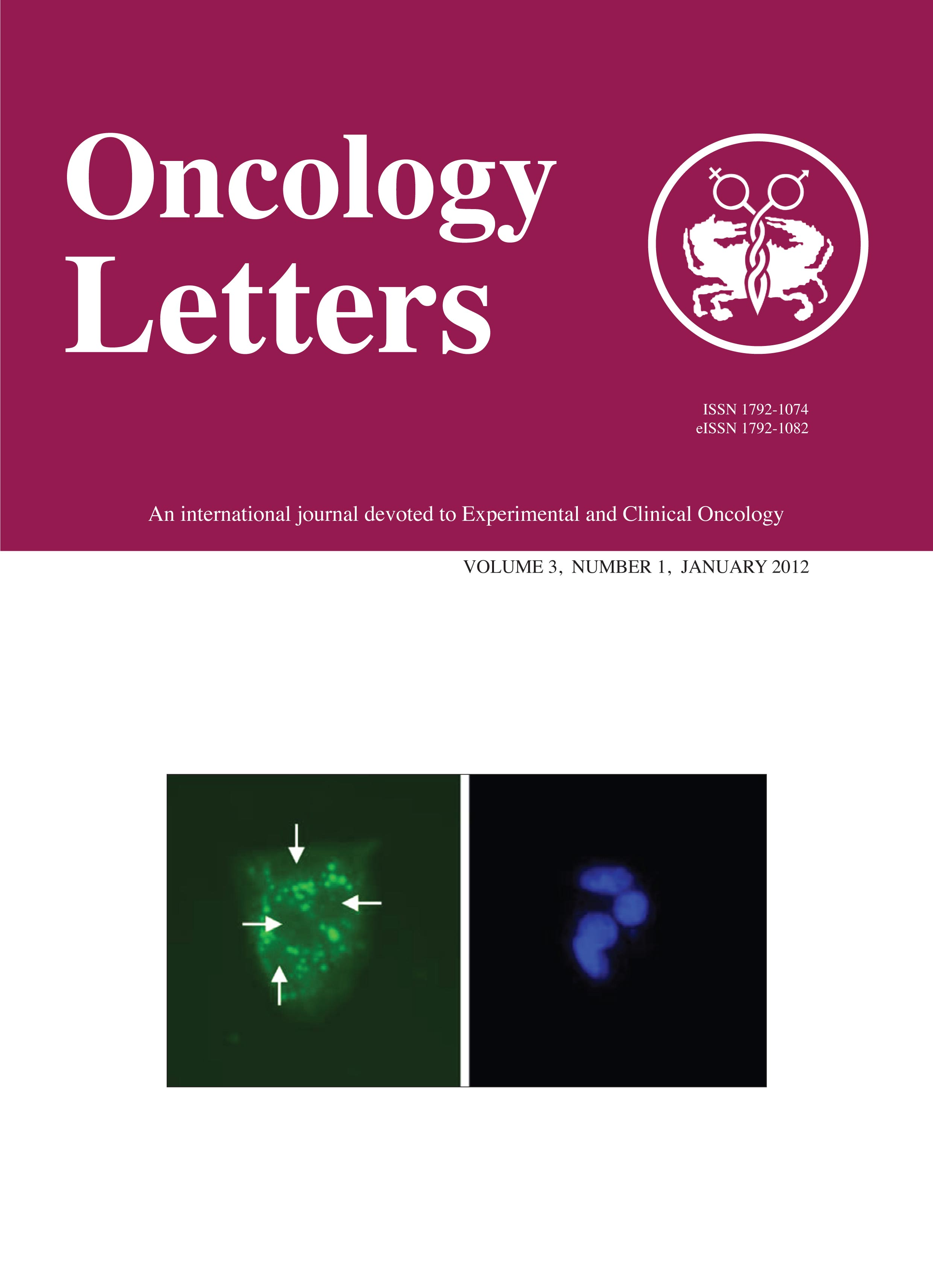
2017 Oncology Letters
Blueberries can reduce the proliferation of ovarian cancer cells by downregulating the levels of specific biomarkers, exhibiting potential for non-pharmaceutical therapy.
Animal Study Blueberry
Blueberries inhibit cyclooxygenase-1 and cyclooxygenase-2 activity in human epithelial ovarian cancer
Lin W, Li Z

2017 Food & Function
Blueberry intake for four weeks decreased levels of a biomarker for oxidative DNA damage in postmenopausal women with pre and early stage hypertension.
Clinical Study Blueberry
Effects of daily blueberry consumption on circulating biomarkers of oxidative stress, inflammation, and antioxidant defense in postmenopausal women with pre- and stage 1-hypertension: a randomized controlled trial
Johnson SA, Feresin RG, Navaei N, Figueroa A, Elam ML, Akhavan NS, et al.
Review Articles
Review articles summarise and critically evaluate the current state of research on a specific topic or field by synthesising multiple primary research studies.

Effects of blueberry and cranberry on type 2 diabetes parameters in individuals with or without diabetes: A systematic review and meta-analysis of randomized clinical trials
2022 May Nutrition, Metabolism and Cardiovascular Diseases Delpino FM, Figueiredo LM, Gonçalves da Silva T, Flores TR
Meta-Analysis Systematic Review Blood Sugar Cranberry Type 2 DiabetesBlueberry and cranberry consumption significantly lowered fasting blood glucose and glycated hemoglobin levels in individuals with diabetes.

Effects of Dietary Red Raspberry Consumption on Pre-Diabetes and Type 2 Diabetes Mellitus Parameters
2021 Sep 04 International Journal of Environmental Research and Public Health Derrick SA, Kristo AS, Reaves SK, Sikalidis AK
RR may offer clinically beneficial effects for the prevention and management of chronic diseases through improvements in glucose handling and insulin sensitivity, adiposity, lipid profiles, ectopic lipid accumulation, inflammation, oxidative stress, and cardiac health.
Review Article Raspberry Type 2 Diabetes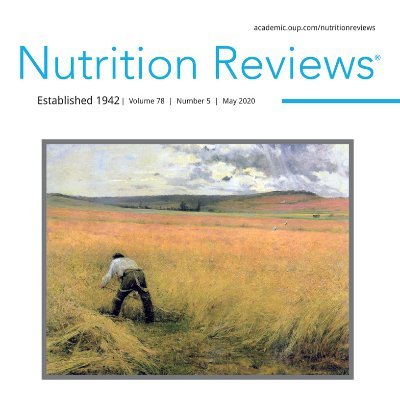
Role of berries in vascular function: a systematic review of human intervention studies
2019 Jul 31 Nutrition Reviews Martini D, Marino M, Angelino D, Del Bo’ C, Del Rio D, Riso P, et al.
Current evidence suggests that berries, at physiological relevant doses, may have a role in the modulation of vascular function and stiffness.
Systematic Review Berry ConsumptionClinical Trials
Clinical trials are research studies that involve people and are conducted to evaluate the safety and efficacy of new treatments or interventions, such as drugs, medical devices, or behavioural therapies.

Moderate consumption of freeze-dried blueberry powder increased net bone calcium retention compared with no treatment in healthy postmenopausal women: a randomized crossover trial
2023 Aug The American Journal of Clinical Nutrition Hodges JK, Maiz M, Cao S, Lachcik PJ, Peacock M, McCabe GP, et al.
Experimental Study Clinical Study Randomised Controlled Trial Bone Calcium BlueberryModerate consumption of blueberries may effectively reduce bone loss in healthy postmenopausal women.

Daily blueberry consumption for 12 weeks improves endothelial function in postmenopausal women with above-normal blood pressure through reductions in oxidative stress: a randomized controlled trial
2023 Jan Food & Function Woolf EK, Terwoord JD, Litwin NS, Vazquez AR, Lee SY, Ghanem N, et al.
Daily consumption of freeze-dried blueberry powder for 12 weeks improves endothelial function through reduced oxidative stress in postmenopausal women with above-normal blood pressure.
Randomised Controlled Trial Blueberry Oxidative Stress
Effects of Blueberry Consumption on Cardiovascular Health in Healthy Adults: A Cross-Over Randomised Controlled Trial
2022 Jun 21 Nutrients Wang Y, Gallegos JL, Haskell-Ramsay C, Lodge JK
Randomised Controlled Trial BlueberryBoth whole blueberries and freeze-dried blueberry powder significantly enhanced plasma nitrite levels, a marker of cardiovascular health, but did not significantly affect other cardiovascular risk factors.
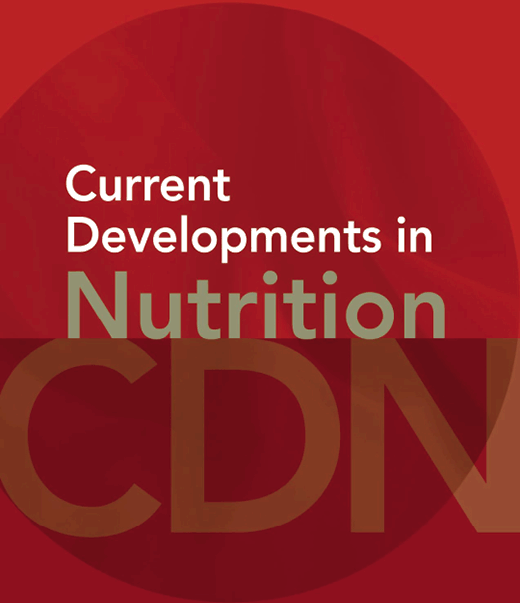
Effect of Whole Blueberry on Bone Biomarkers in Postmenopausal Women with Mild-to-Moderate Bone Loss (P01-029-19)
2019 Jun Current Developments in Nutrition Du C, Norris K, Hanlon Y, Panth P, Imrhan V, Vijayagopal P, et al.
Blueberry consumption showed modest protective effects on bone metabolism, including increased bone formation and decreased fracture risk and inflammation, although no changes in bone density were observed.
Randomised Controlled Trial Clinical Study Postmenopausal Blueberry
Effects of daily blueberry consumption on circulating biomarkers of oxidative stress, inflammation, and antioxidant defense in postmenopausal women with pre- and stage 1-hypertension: a randomized controlled trial
2017 Jan Food & Function Johnson SA, Feresin RG, Navaei N, Figueroa A, Elam ML, Akhavan NS, et al.
Clinical Study Randomised Controlled Trial BlueberryBlueberry intake for four weeks decreased levels of a biomarker for oxidative DNA damage in postmenopausal women with pre and early stage hypertension.
Study Protocols
Published study protocols are detailed plans that outline the objectives, methodology, statistical analyses, and organisation of a research study that have been made publicly available for others to review and use as a reference.
Presentation Slides

Experimental Study
Moderate consumption of blueberries may effectively reduce bone loss in healthy postmenopausal women.
Hodges JK, Maiz M, Cao S, Lachcik PJ, Peacock M, McCabe GP, McCabe LD, Cladis DP, Jackson GS, Ferruzzi MG, Lila MA, Bailey RL, Martin BR, Weaver CM

Randomised Controlled Trial
Both whole blueberries and freeze-dried blueberry powder significantly enhanced plasma nitrite levels, a marker of cardiovascular health, but did not significantly affect other cardiovascular risk factors.
Wang Y, Gallegos JL, Haskell-Ramsay C, Lodge JK

Meta-Analysis
Blueberry and cranberry consumption significantly lowered fasting blood glucose and glycated hemoglobin levels in individuals with diabetes.
Delpino FM, Figueiredo LM, Gonçalves da Silva T, Flores TR

Animal Study
Blueberries can reduce the proliferation of ovarian cancer cells by downregulating the levels of specific biomarkers, exhibiting potential for non-pharmaceutical therapy.
Lin W, Li Z

Clinical Study
Blueberry intake for four weeks decreased levels of a biomarker for oxidative DNA damage in postmenopausal women with pre and early stage hypertension.
Johnson SA, Feresin RG, Navaei N, Figueroa A, Elam ML, Akhavan NS, Hooshmand S, Pourafshar S, Payton ME, Arjmandi BH
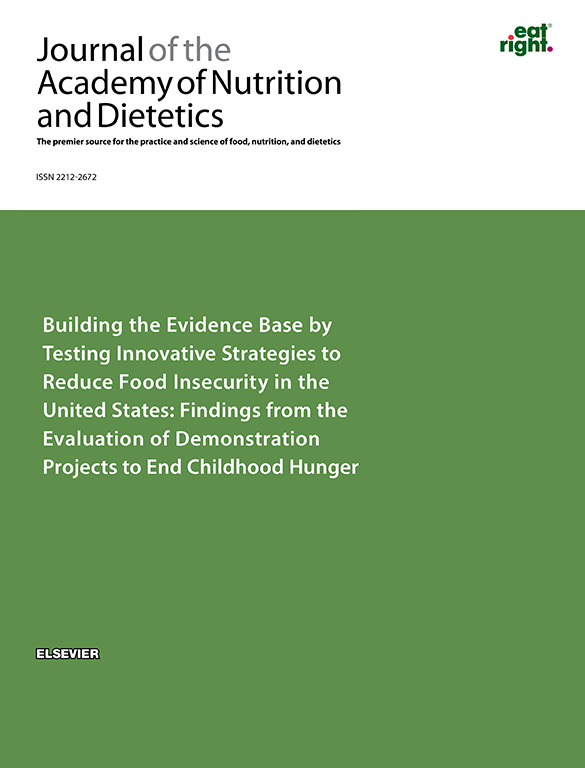
Clinical Study
Daily consumption of blueberries may decrease blood pressure and arterial stiffness in postmenopausal women due to increased nitric oxide production.
Johnson SA, Figueroa A, Navaei N, Wong A, Kalfon R, Ormsbee LT, Feresin RG, Elam ML, Hooshmand S, Payton ME, Arjmandi BH

Experimental Study
Blueberry consumption prior to puberty can significantly prevent bone cell senescence and bone loss induced due to the removal of ovaries in rats.
Zhang J, Lazarenko OP, Blackburn ML, Badger TM, Ronis MJJ, Chen JR
Executive Summary
Write an executive summary in the form of a blog article on the topic of "Research into Chinese medicine treatment for Berry Consumption" summarising the research below and using language that can be easily understood by patients and avoiding medical jargon using a professional and caring tone of voice.
Write an executive summary in the form of a blog article on the topic of "Researched Chinese medicine treatments for Berry Consumption" summarising the research below in an objective and easy to understand way, and using language that can be easily understood by patients. Group the article into Chinese medicine treatments first, followed by nutrition and other treatments. Avoid using medical jargon and use a professional and caring tone of voice.
Write me a concise but easy to understand executive summary on the topic of "Chinese medicine treatments for Berry Consumption" based on the following research that I will give you. Your summary should be 2 paragraphs long in Australian English spelling and include references to the studies.
A Experimental Study published in 2023 in the journal The American Journal of Clinical Nutrition found that Moderate consumption of blueberries may effectively reduce bone loss in healthy postmenopausal women. The research began with a blueberry dose-response study with ovariectomized rats, used as an experimental model simulating postmenopausal conditions. These rats were fed with various doses of blueberry powder, with the aim to identify an optimal dosage for bone calcium retention. The experiment then translated to a human study where fourteen healthy women, all more than four years past menopause, were examined. A baseline was established, and then each participant was provided with varying dosages of freeze-dried blueberry powder equivalent to defined portions of fresh blueberries, to be consumed daily for a series of six weeks at a time. Tracing calcium in the urine was employed as a method to monitor bone calcium balances in both the rat and human trials. The collected data indicated that both the rat and human subjects benefited from blueberry interventions at lower doses. Higher doses, however, showed no such beneficial impact on bone calcium balance. In human subjects, net bone calcium retention increased with low and medium doses of blueberry consumption. Increased urinary excretion of hippuric acid, a metabolite of the antioxidants present in blueberries, was observed with an increase in blueberry consumption. No significant associations were found between bone resorption biomarkers and the interventions implemented in the study.
A Randomised Controlled Trial published in 2022 in the journal Nutrients found that Both whole blueberries and freeze-dried blueberry powder significantly enhanced plasma nitrite levels, a marker of cardiovascular health, but did not significantly affect other cardiovascular risk factors. In this study, a cross-over randomised controlled trial was carried out with three groups: one consuming fresh blueberries, one consuming freeze-dried blueberry powder, and one as the control group. All participated in 1 week of treatment, with a 1-week wash-out period between treatments. The study involved the measurement of systolic and diastolic blood pressure, pulse wave velocity, plasma cholesterol levels (low-density and high-density lipoprotein cholesterol and total cholesterol), triglyceride levels, and glucose and nitrite concentrations. The results indicated an improvement of plasma nitrite levels following both whole blueberry and blueberry powder supplementations compared to their baselines, hinting at potential benefits to cardiovascular health. However, no other significant effects were observed for blood pressure, total cholesterol, low-density and high-density lipoprotein cholesterol, triglycerides, or glucose. Also, none of the changes in individual treatment arms were significantly different from the control. Essentially, the form of blueberry consumed, whether whole or in powder form, did not show any unique advantage in improving cardiovascular health factors.
A Meta-Analysis published in 2022 in the journal Nutrition, Metabolism and Cardiovascular Diseases found that Blueberry and cranberry consumption significantly lowered fasting blood glucose and glycated hemoglobin levels in individuals with diabetes. The research methodology involved a systematic literature review and meta-analysis using publications sourced from seven different databases (PubMed, LILACS, Scielo, Scopus, Web of Science, Cochrane, and Embase) up until May 2021. The researchers included randomized clinical trials where the effects of blueberry or cranberry on parameters linked to type 2 diabetes such as fasting blood glucose, insulin resistance, and glycated hemoglobin were compared. The quality of these studies was evaluated using the Cochrane scale while the Egger test was utilized to assess publication bias and the meta-regression evaluated the estimated effect sizes with potential moderator variables. Following an initial identification of 2034 studies, 39 full-text studies were read, out of which 22 met the criteria to be included in the final meta-analysis. The findings showed that individuals with diabetes experienced significant reductions in fasting blood glucose and glycated hemoglobin readings following the consumption of blueberries or cranberries. However, no significant effects were seen on insulin resistance. While the results were not universally significant when it came to the general population, an exception was found in the sensitivity analysis for fasting blood glucose.
A Animal Study published in 2017 in the journal Oncology Letters found that Blueberries can reduce the proliferation of ovarian cancer cells by downregulating the levels of specific biomarkers, exhibiting potential for non-pharmaceutical therapy. The research method involved the overexpression or silencing of cyclooxygenase (COX)-1 and COX-2, known biomarkers of ovarian cancer, in SKOV3 ovarian cancer cells. The effect of blueberries on the cells' viability was then measured utilizing a colorimetric assay known as an MTT test. Additionally, a mouse model for ovarian cancer was established to further this investigation. The results revealed that the administration of blueberries led to the inhibition of ovarian cancer cell proliferation, primarily through decreased levels of COX-1 and COX-2. Furthermore, regular consumption of blueberries greatly reduced the tumor size in the ovarian cancer mouse model compared to the control without blueberry treatment. This indicates that blueberries might have considerable potential as a natural therapy for ovarian cancer due to fewer side effects and high effectiveness.
A Clinical Study published in 2017 in the journal Food & Function found that Blueberry intake for four weeks decreased levels of a biomarker for oxidative DNA damage in postmenopausal women with pre and early stage hypertension. In the experiment, a randomized, parallel-arm, double-blind, placebo-controlled clinical trial was carried out with 40 postmenopausal women, aged 45 to 65 years, who were either pre or at stage 1 of hypertension. The participants were randomly divided into two, where one group ingested 22 g of freeze-dried highbush blueberry powder every day and the other a placebo. The biomarkers for oxidative DNA damage, oxidative stress, inflammation, and antioxidant defense were evaluated at the commencement, in the middle, and at the end of the eight week period. The levels of the biomarker for oxidative DNA damage, 8-hydroxy-2'-deoxyguanosine (8-OHdG), were found to drop significantly in the group consuming blueberries at the end of the fourth week when compared to the placebo group. However, the levels didn't show a significant difference between the groups at the end of the eighth week. No noteworthy changes were observed in the other measured biomarkers as a result of blueberry consumption.
A Clinical Study published in 2015 in the journal Journal of the Academy of Nutrition and Dietetics found that Daily consumption of blueberries may decrease blood pressure and arterial stiffness in postmenopausal women due to increased nitric oxide production. The research was an 8-week, randomized, double-blind, placebo-controlled clinical trial involving forty-eight postmenopausal women with pre- and stage 1-hypertension from the Tallahassee, FL, area. Participants were randomly given either 22 grams of freeze-dried blueberry powder or 22 grams of control powder. Resting blood pressures were evaluated, and arterial stiffness was assessed using pulse wave velocity measurements. In addition, levels of C-reactive protein, nitric oxide, and superoxide dismutase were measured at the beginning, in the middle, and at the end of the trial. After 8 weeks, the women in the blueberry powder group showed a significant decrease in both systolic and diastolic blood pressure and pulse wave velocity compared to their baseline levels, indicating a reduction in blood pressure and arterial stiffness. In contrast, no changes were observed in the control group. Furthermore, nitric oxide levels were found to be significantly higher in the blueberry group at the end of the trial, suggesting that the observed vascular benefits may be linked to increased nitric oxide production.
A Experimental Study published in 2012 in the journal AGE found that Blueberry consumption prior to puberty can significantly prevent bone cell senescence and bone loss induced due to the removal of ovaries in rats. The methodology used in the study involves two parts: an in-vivo study and an in-vitro study. In the in-vivo portion, immature rats were fed a diet supplemented with blueberries either throughout their development or only prior to puberty, and then subjected to ovariectomy. The changes in bone collagen matrix and senescence markers were then examined. In the in-vitro part, three different bone cell lines were studied for cellular senescence pathways. The bone cells were treated with serum either from ovariectomized rats or from blueberry-fed ovariectomized rats to observe the effects on osteoblastic cell senescence pathways and potential to differentiate into adipocytes. The results showed that ovariectomy led to bone loss, a decrease in collagen and Sirt1, and an increase in the senescence markers collagenase and p16/p21. However, feeding blueberry-supplemented diet to rats prior to puberty prevented these ovariectomy-induced effects. The in-vitro studies revealed that collagen inhibited senescence in a dose-response manner, and serum from ovariectomized rats accelerated osteoblastic cell senescence pathways. It also revealed that bone cell senescence is associated with decreased Sirt1 expression and increased p53, p16, and p21. However, this acceleration did not occur when cells were treated with serum from blueberry-fed ovariectomized rats.
Moderation Tools
Topic
Sign In
Users not signed in are limited to viewing the 5 most recent items of content.